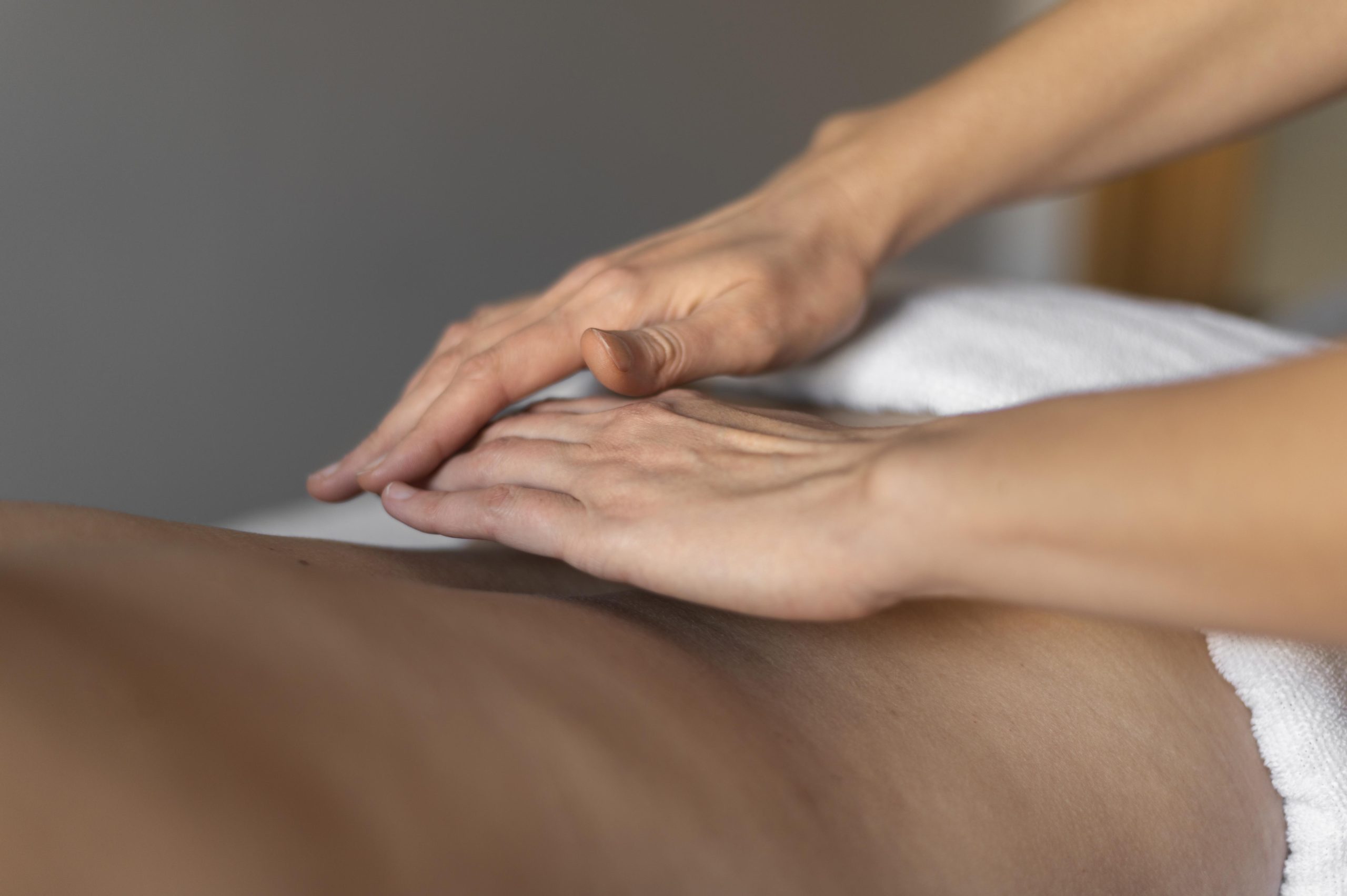Health
What Other Methods Are There For Hair Treatment?

Finding a solution that is effective for thinning hair can mean a lot of trial and error when using over the counter products. From hair thickening shampoos and essential oils to vitamin supplements, finding one that works for those experiencing hair loss may take time and may not provide the desired results. Depending on the level of hair loss being experienced, other methods can provide effective results. If you are someone that has tried different remedies to no success, here are other hair treatments that may help.
Advanced Hair Transplantation
Undergoing surgery to improve a thinning hairline may seem drastic to some, but with modern advancements in hair transplants, the results can be natural-looking and help to reverse the signs of ageing. Whilst a traditional hair transplant may leave obvious scarring or tell-tale signs of treatment, the procedure has seen vast improvements to minimise this. One method, in particular, is minimally invasive and involves no surgical cutting of the skin: Follicular Unit Extraction (FUE). A popular choice for medical tourists travelling to Turkey, a hair transplant in Istanbul using the FUE technique involves individual hair follicles being precisely removed from a healthy growth area. These individual hair grafts are then transplanted to the area of hair loss and can follow the hair’s natural direction of growth. This type of hair transplant has minimal downtime and doesn’t involve surgically removing a strip of skin, such as found with other hair transplant techniques.
Medication
Depending on the root cause of hair loss, some non-prescription medication can help. For someone suffering from alopecia areata, where patchy hair loss can occur on the scalp and various areas of the body, the hair could regrow in time if stress-related and not require any additional treatment. Medication such as Rogaine can help stimulate hair growth if this is a concern and works by massaging it into the scalp on a daily or twice-daily basis. This method can take time to show results, sometimes up to 6 months, and may only slow the rate of hair loss rather than reverse it but can be ideal if the hair loss is not permanent. Propecia is another medication for men in the form of a prescription pill. Similar results can be expected of either regrowth in the areas of hair loss or the slowing down of hair loss overall.
Laser Therapy
A different method completely to medication and surgery is the use of laser light therapy for hair loss. This uses red light at a lowlevel to enhance the blood circulation to the hair follicles. A safe and less invasive treatment, laser therapy can target an area of hair loss and if used alongside other treatment products, can help hair to regrow naturally. Results can take time to show due to this and may need multiple treatment sessions over a few months depending on the aesthetic an individual is looking for. Ideal for those in the early stages of hair thinning or hair loss, it is not an effective option for those with permanent hair loss and can be expensive to undergo.
For those experiencing the early stages of hair lossto permanent loss of hair on the scalp, having a consultation with a doctor or clinic is always recommended as a first step. This way, the hair loss can be assessed properly and the right treatment, whether it’s surgery, medication, or laser therapy, can be advised, helping restore an individual’s hair confidence once again.
Health
How Circuhealth Clinic’s Treatment Will Benefit You: A Comprehensive Guide

Maintaining optimal health can be challenging in the modern world. Busy lifestyles, poor dietary habits, and the stress of daily life can all contribute to a decline in our overall well-being. Circuhealth Clinic Clinic, led by the renowned Nadia Nassif, offers a holistic approach to health by improving circulatory health through various advanced, non-invasive treatments.
The Importance of Circulatory Health
Circulatory health is fundamental to overall wellness. The circulatory system is responsible for delivering oxygen and nutrients to every cell in the body and removing waste products. When this system is compromised, it can lead to a host of health issues, including chronic fatigue, poor skin health, and even cardiovascular diseases. Improving circulation can enhance energy levels, support organ function, and promote overall vitality.
Personalized Exercise Programs
One of the cornerstones of Circuhealth Clinic’s approach is the creation of personalized exercise programs. These programs are not one-size-fits-all; instead, they are tailored to meet the unique needs of each individual. Personalized exercise programs can significantly enhance circulatory health by boosting blood flow, which delivers essential nutrients and oxygen to tissues and organs.
For instance, regular physical activity strengthens the heart, improves circulation, and helps regulate weight. A tailored exercise program can reduce the risk of injuries, increase motivation by aligning with specific fitness goals, and provide consistent progress tracking for optimal results. This personalized attention ensures that you are not only getting fitter but also healthier in the most efficient way possible.
Detoxification Treatments
Detoxification treatments are another vital aspect of Circuhealth Clinic’s offerings. These treatments are designed to remove toxins that impair circulation, thus enhancing overall health. Circuhealth Clinic detoxification protocols include Hydration Therapy, Detox Diets, Herbal Supplements, and antioxidant consumption.
- Hydration Therapy: Drinking plenty of water and hydrating fluids helps flush out toxins, promoting better circulation.
- Detox Diets: Consuming a diet rich in fruits, vegetables, and whole grains, while avoiding processed foods and sugars, supports the body’s natural detoxification processes.
- Herbal Supplements: Using herbs like milk thistle, dandelion root, and burdock root, known for their detoxifying properties, supports liver function and toxin elimination.
By incorporating these detoxification treatments, Circuhealth Clinic helps to ensure that your body is free from harmful toxins, thus improving circulatory health and overall well-being.
Stress Reduction Techniques
Stress can significantly impact circulatory health. High-stress levels increase cortisol production, leading to various health issues such as high blood pressure, weakened immune function, and poor skin health. Circuhealth Clinic employs several stress reduction techniques to help manage and reduce stress, thereby supporting circulatory health.
For example, the 54321 method is a grounding exercise designed to manage acute stress and reduce anxiety. This method involves identifying five things you can see, four things you can touch, three things you can hear, two things you can smell, and one thing you can taste. This technique can be particularly useful before bedtime to promote relaxation and improve sleep quality.
Other stress reduction techniques include meditation, deep breathing exercises, and yoga. These practices help calm the mind, reduce cortisol levels, and improve overall mental health, supporting better circulatory health.

Importance of a Healthy Diet
A healthy diet is crucial for maintaining good circulatory health. Circuhealth Clinic emphasizes the importance of eating a balanced diet with plenty of fruits, vegetables, whole grains, and lean proteins. Such a diet can help reduce the risk of chronic diseases, improve energy levels, and support overall health.
For those looking to manage hypertension, Circuhealth Clinic suggests a specific dietary approach:
- 10 Hours Before Bed: No more caffeine.
- 3 Hours Before Bed: No more food or alcohol.
- 2 Hours Before Bed: No more work.
- 1 Hour Before Bed: No more screen time.
- 0: Number of times you hit the snooze button.
This structured approach helps regulate blood pressure and promotes better sleep, both essential for good circulatory health.
Conclusion
Circuhealth Clinic Clinic, under the expert guidance of Nadia Nassif, offers a holistic approach to health that focuses on improving circulatory health through personalized exercise programs, detoxification treatments, stress reduction techniques, and advanced diagnostics. By addressing the underlying causes of health issues and providing tailored treatment plans, Circuhealth Clinic helps individuals achieve optimal health and well-being.
Whether you are looking to manage a chronic condition, improve your overall health, or simply enhance your quality of life, Circuhealth Clinic’s comprehensive approach offers a path to better health. Embrace these treatments and lifestyle changes to experience the full benefits of improved circulatory health and overall wellness.
-

 Tech3 years ago
Tech3 years agoEffuel Reviews (2021) – Effuel ECO OBD2 Saves Fuel, and Reduce Gas Cost? Effuel Customer Reviews
-

 Tech5 years ago
Tech5 years agoBosch Power Tools India Launches ‘Cordless Matlab Bosch’ Campaign to Demonstrate the Power of Cordless
-

 Lifestyle5 years ago
Lifestyle5 years agoCatholic Cases App brings Church’s Moral Teachings to Androids and iPhones
-

 Lifestyle3 years ago
Lifestyle3 years agoEast Side Hype x Billionaire Boys Club. Hottest New Streetwear Releases in Utah.
-

 Tech6 years ago
Tech6 years agoCloud Buyers & Investors to Profit in the Future
-

 Lifestyle4 years ago
Lifestyle4 years agoThe Midas of Cosmetic Dermatology: Dr. Simon Ourian
-

 Health5 years ago
Health5 years agoCBDistillery Review: Is it a scam?
-

 Entertainment5 years ago
Entertainment5 years agoAvengers Endgame now Available on 123Movies for Download & Streaming for Free
